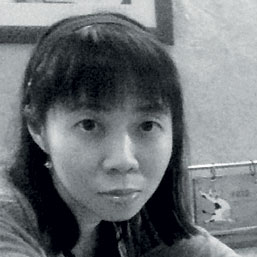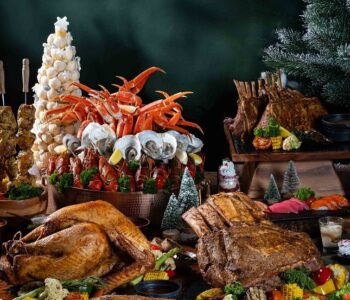Sanoesa produces premium wooden products that are modern in look, yet are meticulously handcrafted by using traditional craftsmanship. Reclaimed old wood, from teak to rosewood, is turned into various beautiful eco-friendly items, including exquisite briefcases and cool bags that combine wood with exotic khombouw tree barks from Papua.

Around the world, the age-old craftsmanship is on the verge of extinction. Sanoesa is the brainchild of Andrew Dwipa Kencana; his strong sense of responsibility to ensure the survival of Indonesian traditional craftsmanship, as well as his soft spot for all things wood, led him to establish Sanoesa, which is the abbreviation of Satu Noesantara. Satu means one, while the word noesantara refers to Indonesia as an archipelago country. Moreover, Andrew wanted Sanoesa to produce eco-friendly goods by using reclaimed wood.
Two of his students (Andrew was a Graphic Design lecturer), namely Bimo Ario and Nathanael Christian, joined him as partners in Sanoesa that was established in June 2014 – their love for Indonesian culture and all things wood brought them together as a team. Nathanael (Nael) himself has a soft spot for wood due to its uniqueness.
“Every type of wood has its own unique characteristic, in fact, each piece of wood is unique; no piece of wood has exactly the same grain. Hence every single wooden product is actually a one-of-a-kind item,” he says.
Wood is usually associated with furniture; through its merchandise, Sanoesa is on a mission to show people that wood is definitely not used for furniture only – a wooden bag is this brand’s first product. As a brand that aims to create out-of-the-box designs with wood as the main material, Sanoesa wanted to offer “unusual” goods on the market – an Indonesian brand which offers wooden bags, particularly in 2014, is a rarity.

Andrew and his partners had difficulties in finding an artisan who was able to create wooden bags, until they met Ridwan Susanto, a craftsman who was able to meticulously produce wooden bags, even though he had no previous experience in making them; today, after quitting his job as a furniture maker in Jakarta, Ridwan, a native of Sukoharjo village, is the quality controller at Sanoesa’s workshop which is located in Sukoharjo.
The handmade goods, which are created by using craftsmanship that has been passed down from generation to generation, are made in Sukoharjo – it is a village in Central Java that is considered home to many of the best furniture makers in Indonesia.
Furniture manufacturing, unfortunately, has suffered a decline, resulting in the lack of opportunities for the craftspeople to get decent work in the furniture industry. “Many of those highly skilled craftspeople in Sukoharjo run warung Indomie (food stalls which serve Indonesian instant noodles) in order to make a living,” says Nael who visited Sukoharjo with his partners.
Witnessing the waste of talent of the artisans firsthand was the catalyst for the three men’s commitment to revive the village’s traditional craftsmanship. “We want to preserve the continuity of traditional Indonesian craftsmanship by creating a sustainable source of income for the artisans, thus they are not tempted to do other work other than crafts. We want Sanoesa to be the bridge between the artisans and the buyers,” says Nael.

Hence Nael and his partners inform the craftspeople what the clients expect from the products in terms of quality and designs; together, they produce wooden items in all shapes and sizes, from bow ties to briefcases.
The exquisite Koper Kajoe (briefcase, suitable for a laptop) is Sanoesa’s masterpiece – each briefcase is handcrafted from a whole solid Sukoharjo teakwood aged more than 100 years, and combined with genuine sheep skin for its lining. “We are the only Indonesian brand that offers a wooden briefcase; technically, it is our most complicated product to make,” says Nael.
Over the years, Sanoesa has been gradually introducing new product categories, and is open to collaborate with other local brands. For example, together with Noesa, this brand produces the Bentala collection, a range of gorgeous, eco-friendly wooden bags, which combine reclaimed wood and Indonesian traditional hand-woven textiles that are dyed with natural dyes.
Today, Sanoesa is run by Nael, Bimo and its latest partner, Andrew da Costa – Sanoesa’s founder, Andrew Dwipa Kencana, has moved to Myanmar to follow his calling of becoming a monk. Bimo is the head of production, while Nael focuses on marketing and business development, and Andrew handles day-to-day operations of the business – the three of them design Sanoesa merchandise together.

Whenever possible, Sanoesa uses reclaimed wood in forms ranging, among others, from railway pads to door frames to house pillars. For order in large quantity, say custom-made furniture for hotels, due to lack of availability, Sanoesa uses non-reclaimed wood – however, Nael says that they use sustainable certified wood from Perhutani (state-run forestry firm) only.
Starting off as a retail brand, Sanoesa has indeed expanded into business-to-business platforms; nowadays it also creates custom-made pieces, from furniture to kitchenware for hotels and cafes.
Actually, in July 2016, Sanoesa formally rebranded the company into 5 divisions, namely Roe.pa (fashion accessories; currently it offers bowties only, but rings, earrings, bangles and necklaces will be on offer too. The bowtie, made of reclaimed old teak, costs Rp 329,000), Per.so.na (lifestyle goods, including bags, clutches, briefcases and mouse pads that are priced between Rp 100,000 and Rp 4,500,000), Da.poer (kitchenware, from Rp 50,000 to Rp 400,000) as well as Roe.ang and Re.kan.
While Re.kan offers various personalized products, from wooden wedding invitations to café’s signage, Roe.ang offers business-to-business services that may include custom-made furniture and interior design consultation as well, depending on the clients’ wish.

Although currently the products from its business-to-business production is the bread and butter of Sanoesa, Nael hopes that someday his brand would be able to focus on producing unique goods for its retail market, particularly in the form of bags and briefcases that are made of reclaimed wood. “We want people to think of Sanoesa when they think of wooden bags,” says Nael.
As Sanoesa uses premium materials (and as said by Nael, reclaimed wood actually costs a lot of money to obtain) and every piece is crafted by hand, its cost of production is very high, thus the goods are sold at premium prices. However, selling high quality, locally made merchandise at premium prices is a challenging work in Indonesia – for many buyers, the price is a determining factor when purchasing goods.
“Currently, locally made high-priced quality wooden items, like our briefcases that cost Rp 4,500,000 each, are not a popular purchase here,” says Nael. As a note, Sanoesa’s wooden bags have premium price tags too, they cost Rp 1,499,000 each.
Nael and his partners understand that their goods must be sold in sufficient quantity to cover the costs, to be profitable, and to create a sustainable source of income for the artisans. Sanoesa, in the near future, will offer cheaper items, such as simple yet cute wooden mouse pads, which cost Rp 100,000 each.

It takes time for Indonesians to embrace locally made premium products. For the three men behind Sanoesa who love Indonesian culture wholeheartedly, though their business will take time to come to fruition (each man still keeps a steady job outside Sanoesa), it is definitely worth it – Sanoesa has become more than just business, it has become their labour of love.
Sanoesa (BY APPOINTMENT ONLY)
Grand Galaxy City, 3rd floor.
Boulevard Raya Blok AA1 # 24 A, Bekasi.
Website: www.sanoesa.com
Instagram: @sanoesa
WhatsApp: +62 821 13062 000







